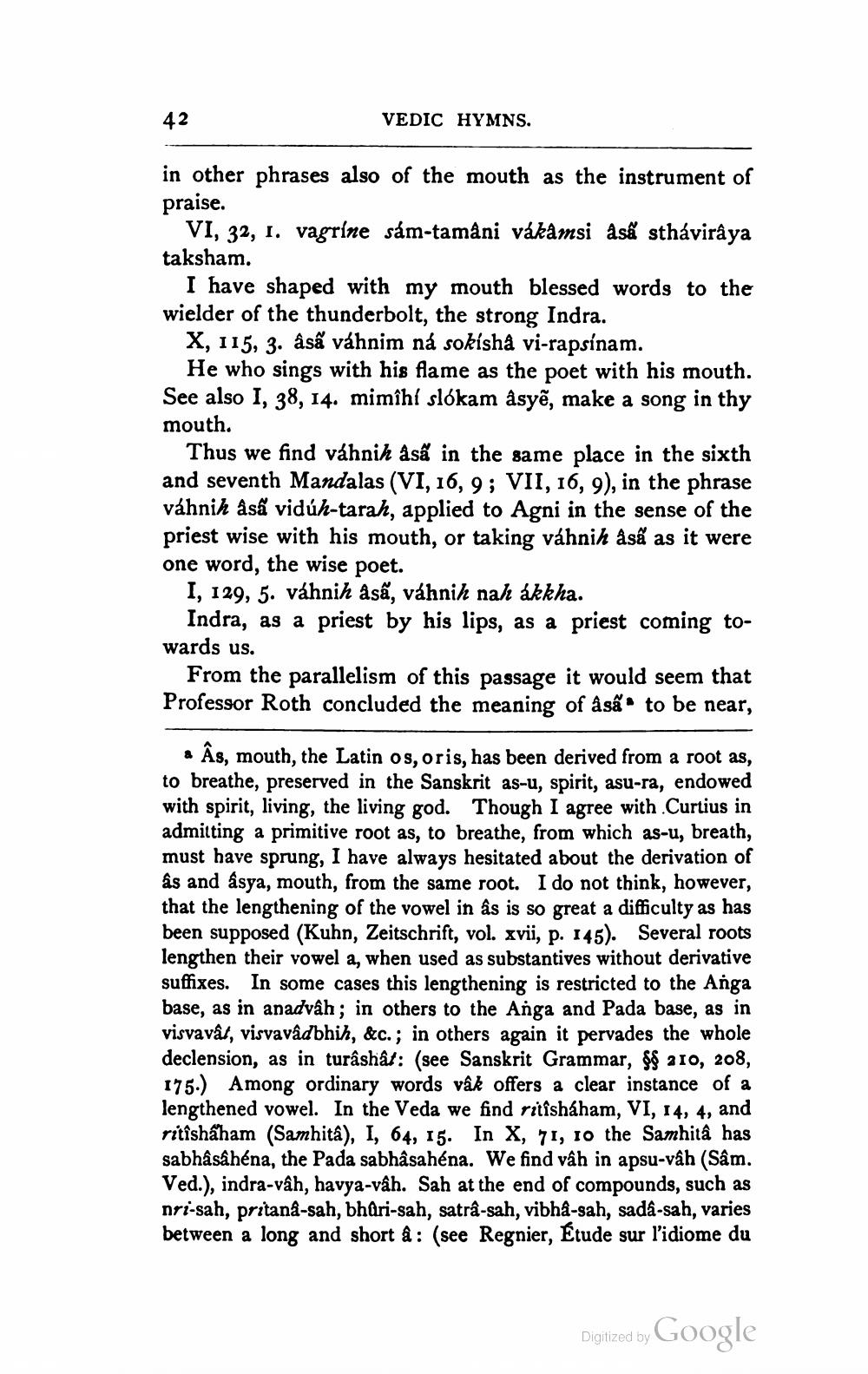________________
42
VEDIC HYMNS.
in other phrases also of the mouth as the instrument of praise.
VI, 32, 1. vagríne sám-tamâni vákamsi asă sthaviraya taksham.
I have shaped with my mouth blessed words to the wielder of the thunderbolt, the strong Indra.
X, 115, 3. âsã váhnim ná sokísha vi-rapsínam.
He who sings with his flame as the poet with his mouth. See also I, 38, 14. mimîhí slókam asyẽ, make a song in thy mouth.
Thus we find váhnih åsã in the same place in the sixth and seventh Mandalas (VI, 16, 9; VII, 16, 9), in the phrase vahnih åsã vidúh-tarah, applied to Agni in the sense of the priest wise with his mouth, or taking vahnih åsã as it were one word, the wise poet.
I, 129, 5. váhnih åsā, váhnih nah ákkha.
Indra, as a priest by his lips, as a priest coming towards us.
From the parallelism of this passage it would seem that Professor Roth concluded the meaning of asão to be near,
a Âs, mouth, the Latin os, oris, has been derived from a root as, to breathe, preserved in the Sanskrit as-u, spirit, asu-ra, endowed with spirit, living, the living god. Though I agree with .Curtius in admitting a primitive root as, to breathe, from which as-u, breath, must have sprung, I have always hesitated about the derivation of as and asya, mouth, from the same root. I do not think, however, that the lengthening of the vowel in as is so great a difficulty as has been supposed (Kuhn, Zeitschrift, vol. xvii, p. 145). Several roots lengthen their vowel a, when used as substantives without derivative suffixes. In some cases this lengthening is restricted to the Anga base, as in anadváh; in others to the Anga and Pada base, as in visvavat, visvavad bhih, &c.; in others again it pervades the whole declension, as in turâshất: (see Sanskrit Grammar, $$ 210, 208, 175.) Among ordinary words vâk offers a clear instance of a lengthened vowel. In the Veda we find riiîsháham, VI, 14, 4, and ritishāham (Samhita), I, 64, 15. In X, 71, 1o the Samhitâ has sabhâsâhéna, the Pada sabhâsahéna. We find vâh in apsu-vâh (Sâm. Ved.), indra-vâh, havya-vâh. Sah at the end of compounds, such as nri-sah, pritanâ-sah, bhūri-sah, satrâ-sah, vibha-sah, sadâ-sah, varies between a long and short â : (see Regnier, Etude sur l'idiome du
Digitized by
Digitized by Google




